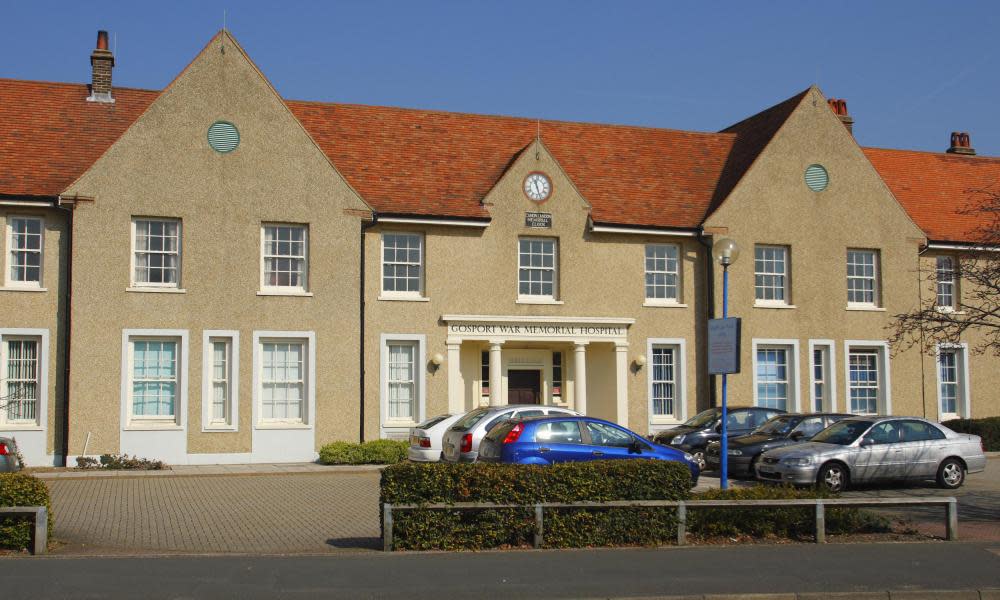Gosport hospital deaths: how victims' families were let down for 20 years

In October 2003, a University of Leicester professor handed over a report to the Department of Health that should have rung alarm bells in high places just three years after Harold Shipman was found guilty of 15 murders. It was an audit of the deaths of elderly patients at a hospital in Gosport who had been routinely prescribed opioid drugs. Some of them were supposed to be heading for rehabilitation. Instead, the police were investigating their demise.
The first complaint from families came in 1998. Other families also came forward. The police were alerted and a couple of health investigations took place but they did not come to definitive answers. The patients had been frail and ill and many would not have been expected to leave Gosport War Memorial hospital. Then Richard Baker, from the clinical governance research and development unit at the university’s health sciences department, was asked to carry out a review by the then chief medical officer, Sir Liam Donaldson.
Baker did not pull his punches. He wrote of “a practice of almost routine use of opiates before death” and the words he found in patient notes: “Please make comfortable.” He looked at five cases in detail and saw that the doctor looking after the two wards, a GP called Jane Barton, wrote on some of the notes on the very day of admission: “I am happy for nursing staff to confirm death.”
He recommended that each case should be individually investigated. The routine use of opioids, he said “almost certainly had shortened the lives of some patients, and it cannot be ruled out that a small number of these would otherwise have been eventually discharged from hospital alive”.
But for the next 10 years, the increasingly distressed families of those who had died suddenly – and, they believed, prematurely – at Gosport in the 1990s were unable to see Baker’s review. Freedom of information requests were denied by government. Many talked of a cover-up. It was finally published in 2013, the year before the inquiry chaired by the bishop of Liverpool, James Jones, got under way.
It was one of a long list of frustrations and setbacks that have made the families angry and increased their despair over the years. They blame Barton and have always wanted her to face criminal charges but it has not happened. So much time has elapsed without a prosecution that experts doubt it would now be possible, although the Eastbourne MP Steven Lloyd, a supporter of the families, has said he will table an early day motion in parliament and push hard for criminal charges to be brought.
In April 2009, after a long fight, the families managed to get inquests held for 10 patients who died at the hospital. The jury at Portsmouth coroner’s court ruled at the end of four weeks of evidence that Robert Wilson, 74, Elsie Devine, 88, and Geoffrey Packman, 67, were given drugs that were not appropriate for their conditions and that contributed to their deaths. In two more cases, the deaths of Elsie Lavender, 83, and Arthur Cunningham, 79, the drugs were appropriate but also hastened death.
The jury said medication had not played a part in the deaths of five others – Leslie Pittock, 82, Helena Service, 99, Ruby Lake, 84, Enid Spurgin, 92, and Sheila Gregory, 91.
That same year, Barton was called before the General Medical Council, the doctors’ disciplinary body. The families’ expectations were high. Nobody ever accused Barton of being another Shipman. Her intentions were good. But the disciplinary panel found her guilty of serious professional misconduct.
Barton said they were just too busy on the wards to adjust the doses of diamorphine and other medications in the syringe driver that pumped the drug into the patient’s body around the clock and kept them pain-free. She did not choose to give one-off injections to relieve pain. She told the panel: “We simply did not have the level of staffing to do that on a ward of 24 people.”
Patients did not suffer from a lack of nurses, she told the tribunal, but “they would have if two trained staff had been tied up titrating and drawing up and giving injections of diamorphine, even every four hours, let alone every hour”.
In its determination, the GMC panel said that “although Barton conceded that, with hindsight, she should have refused to continue to work in a situation that was becoming increasingly dangerous for patients, she insisted that, in the circumstances of the time, her actions had been correct”.
That refusal to admit she could have been wrong perturbed the panel, which found she had “a worrying lack of insight”. It was concerned, it said “by Dr Barton’s intransigence over matters such as the issue of balancing the joint objectives of keeping a patient both pain-free and alert.
“This, combined with her denigration of senior colleagues and guidelines, produced an image of a doctor convinced that her way had been the right way and that there had been no need to entertain seriously the views of others.”
And yet the panel was impressed by hundreds of testimonials praising Barton as a GP. It did not strike her off – a decision the GMC afterwards said was wrong and would have been appealed against if it had been able to do so at the time (the system has now changed to allow that). The panel imposed conditions on her practice as a GP. But Barton retired and requested voluntary erasure, which meant she could no longer practice.
Between 1988 and 2000, Barton certified 833 deaths. Twenty years later, the Jones inquiry has determined that 456 patients died and possibly 200 more had their lives shortened because of the Hampshire hospital’s practice of giving life-shortening opioid drugs without medical justification.

 Yahoo News
Yahoo News 
